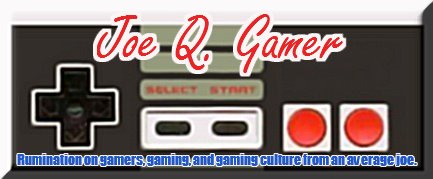
I am an unapologetic Castlevania nerd. To the core, sons and daughters. To illustrate just how far I've gone into the realm of fanatical fanboy territory, I own a Castlevania T-shirt and have been known to actually wear it in public. Sometimes. Seriously. Send help.
I'm not usually one for fanatical devotion to anything related to a specific 'brand' in media. It's unhealthy. It clouds judgment and leads to idiot behavior, like any other kind of fanaticism. A relevant example would be the Nintendo and Sony fanboys who lurk on GameFAQs and other gaming related message boards. Go ahead and try to reason with them. Pick a subject guaranteed to cause them to crawl out of their anime wall-scroll and manga collections to respond. Like, "The PS3 has fallen behind in gaming mind-share". Point out objective facts and try to appeal to them using rational, logical thought. Go ahead. I'll wait. Be polite and thorough with your thesis. Point out your neutrality in the overall discussion. Do not post pictures of retards crossing the finish line or LOLcats. Rise above it.
See how well that works?
I have no room to speak. I've recently discovered that I'm that guy when it comes to Konami's signature Dracula-slaying platformer. I loved Portrait of Ruin, arguably the least interesting and most formulaic of the DS series entries and, to my shame, I'm going to buy the controversial new Castlevania fighting game when it's released on Wii later this year. I can't help it. It's like a cult, or a narcotic. I just cant say "NO" to the Castlevania. I know. I feel sorry for me. too. I'm hanging my head in shame right now. In my Castlevania shirt, no less.
Why Castlevania, you ask? A healthy part of it is pure, unadulterated nostalgia. The first game I got seriously hooked on for NES was Castlevania; the same is true for Playstation(the indefatigable Symphony of the Night). Part of it is comfort. The formula(s) for any given Castlevania game haven't changed since the eighties and nineties. I know exactly what I'm getting when I pop in a new Castlevania game. Part of it, and this is going to sound weird but hear me out, is how disposable the experience is. I can steal twenty minutes of play time on the DS or PSP on lunch break or between classes: I've played the series so thoroughly that even new games are almost rote by association. It's low impact gaming, and it's relaxing. It doesn't change the amount of sheer enjoyment I can squeeze out of them, but it does illustrate the amount of monkey-level conditioning that I've allowed the Castlevania development guys(helmed by the infamous IGA)to subject me to.
(A quick interjection: adult readers? Let's play a drinking game. Every time I type 'Castlevania', you take a drink. For example, I will now type 'Castlevania'. When you read the word 'Castlevania', you will then take a drink. Ready? Castlevania. You can take a drink now, because I typed 'Castlevania'. Get it? Anyone who can finish reading this post without throwing up or passing out gets an anime wall scroll. Castlevania.)
Let's pause a minute so you can re-read the post so far, just so we're clear on what the issues are. Remember to take your drinks.
Still with me? Let us, then, continue, gentle reader.
Bearing all that in mind, it's no surprise then that I bought the newest game for DS last week, the stupidly titled 'Order of Ecclesia'. On the surface, it's the same game they've been releasing since the Playstation one era. It's got the signature open-world roaming. It's got leveling and item grinding. It's got the same enemies and backgrounds they've been using since the GBA days. The same items populate the stores(once you open them up). You can still back dash and (eventually) double-jump. So basically, I thought 'here we go again! Glee!', and set to the task of whacking Dracula for the ten-thousanth time. An hour later, I realized I was playing something much more ambitious than any Castlevania game since Symphony of the Night. I died a lot. I struggled to wrap my head around the new weapons system, dubbed the "glyph system", and the custom combos you can create with it. I noted how far up the difficulty had been ramped. I meditated on how you don't start off in Dracula's castle(cleverly named 'Castlevania'). I balked at the map screen, not seen since Castlevania II: Simon's Quest on NES. While all the usual stuff you find in a Castlevania game is present and accounted for, it's cleverly rearranged. There are things in the game for which I have no reference at all. It's an honest to God attempt to move the series in a new direction.
It irrationally pissed me off.
I shut the game off, frustrated, and took a long look at how I approached the Castlevania series as a fan. I thought about how static and cookie-cutter the series was, and thought harder about all the posts I'd written defending that on various gaming forums. I might have posted a picture of a retard crossing a finish line. I might even have done that wearing my Castlevania T-shirt. I discovered I was one of 'those people', like on GameFAQs. I was wearing a Castlevania T-shirt, and I was suddenly struck with how ridiculous that was.
(A quick digression: did I mention that if Castlevania is in italics, you have to drink double? Well, you do. So there. Bottoms up champ.)
I went back to Order of Ecclesia determined to play the game without prejudice. I applied myself to learning the new systems. I adjusted my expectations in regards to difficulty. I'm really enjoying it. In fact, it might be my favorite of the portable entries. I might even buy a T-shirt.
In an industry that thrives on milking recognizable brands, it's refreshing to see a franchise that's usually so formulaic try and stretch it's boundaries, albeit slowly. Or, at least it should be. Maybe if we gamers were more open to experimenting in our legacy gaming franchises, we'd see more innovation and less rehashes than we do now. Keep that in mind when next year's Madden is a rhythm-action dating sim.
Castlevania Castlevania Castlevania Castlevania Castlevania.




